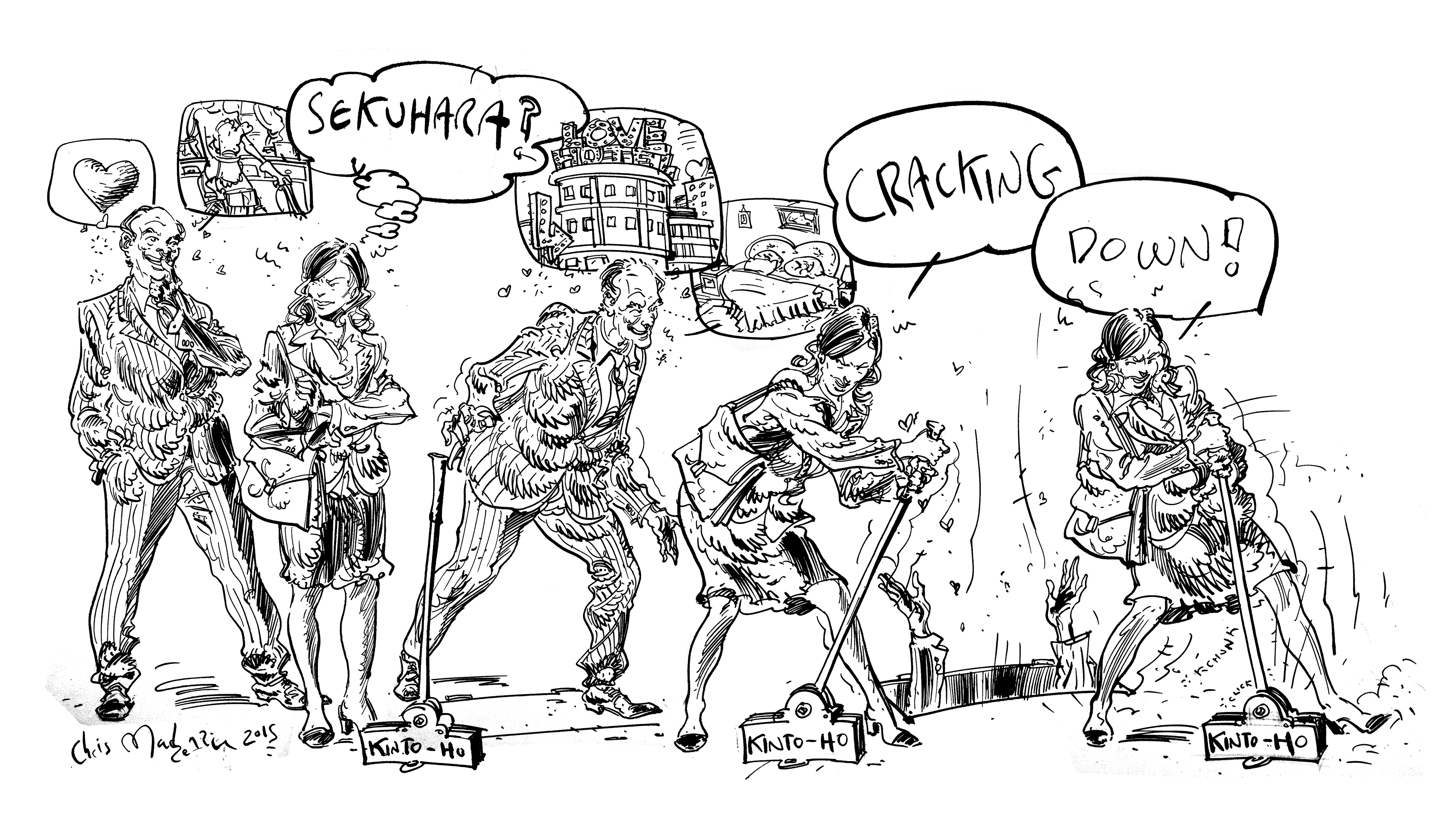Once upon a time, the English word "harassment" was unfamiliar to Japanese ears. Over the past quarter-century the word has burrowed its way deep into the collective consciousness, at times even replacing the Japanese word iyagarase. Today one would be hard-put to find a citizen unfamiliar with the English version and its many derivatives (see below).
What gained the word "harassment" some PR traction was the selection in 1989 of the Japanese transliteration of the English expression "sexual harassment" for the Word of the Year contest's Grand Prize (ryūkōgo taishō). In Japanese, this term becomes quite a mouthful: sekushuaru-harasumento. The shortened form, seku-hara (a syllabic acronym, which is quite common in Japanese), has become firmly entrenched in the Japanese lexicon, bucking the transient trend of many fad words. These expressions in turn gained recognition value thanks to Japan's first-ever sexual harassment lawsuit filed the same year, with the ruling on that case handed down by the Fukuoka District Court in April 1992.
The syllabic acronyms didn't stop with seku-hara. We now have pawa-hara, aka-hara, doku-hara, kaji-hara, mata-hara, pata-hara, and lots of other hara. Respectively, they stand for power harassment, academic harassment, doctor harassment, housework harassment, maternity harassment (see " 'Maternity harassment' verdict benefits women, men — and our humanity," Labor Pains, Oct. 29), and even paternity harassment.



















With your current subscription plan you can comment on stories. However, before writing your first comment, please create a display name in the Profile section of your subscriber account page.